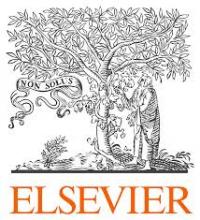Resource information
Traditional olive growing can survive only by improving olive farmer income and recognizing its multifunctional role. In this study, we propose a sustainable management model which entails the recycling of urban wastewater and its distribution by drip irrigation and the use of soil management techniques based on the recycling of polygenic carbon sources internal to the olive orchard (cover crops, pruning material). The model was applied for a 8-year period in an olive orchard located in a semi-arid marginal area of Southern Italy. An analysis is performed to evaluate the economical sustainability of the proposed model in comparison to the conventional management system (rainfed conditions, tillage, empirical fertilization, biennial pruning and pruned material burning). Furthermore, the study assesses the environmental benefits coming from the application of the examined orchard management systems focusing especially on CO₂ stocks in plants and soil, and anthropogenic and natural CO₂ emissions. The sustainable model appears productive and profitable, socially and environmentally sustainable. The significant income received every year by olive growers can persuade them to remain in the territory limiting the urgent phenomena of orchard abandonment, preserving typical landscape, and carrying out an ecological control role against land degradation processes.



